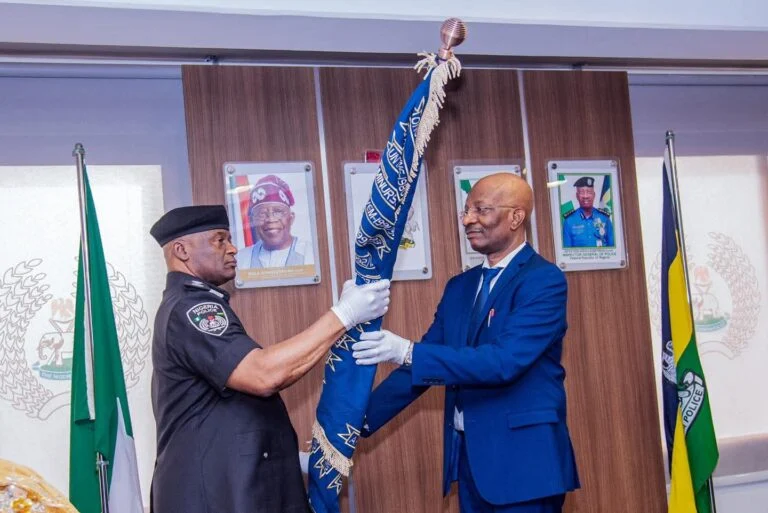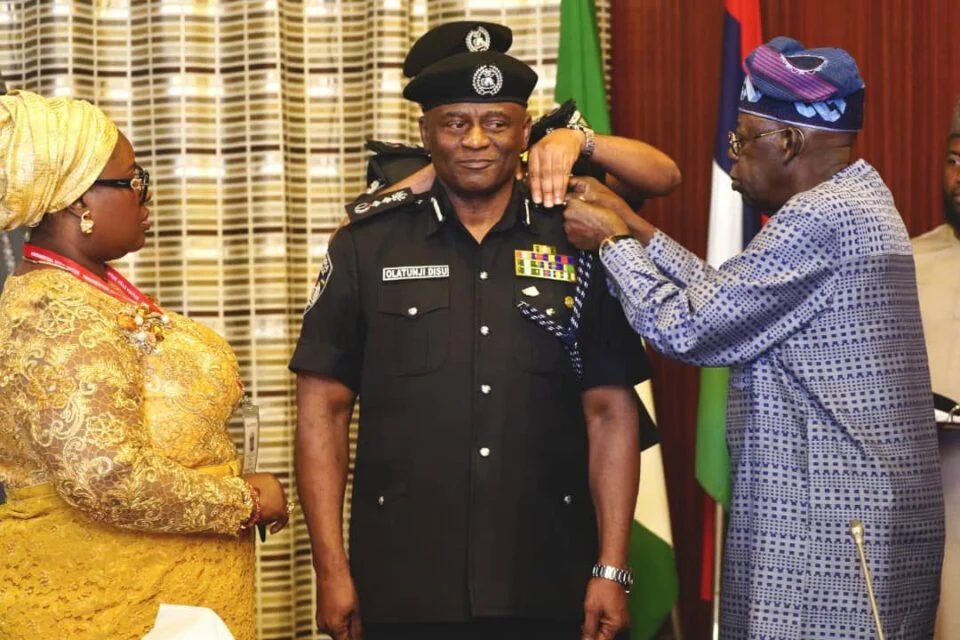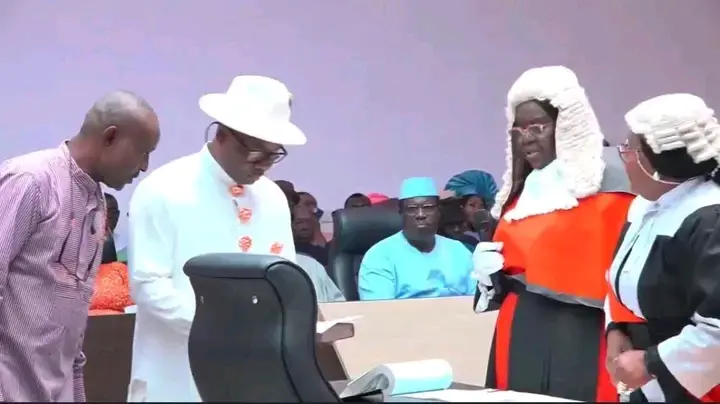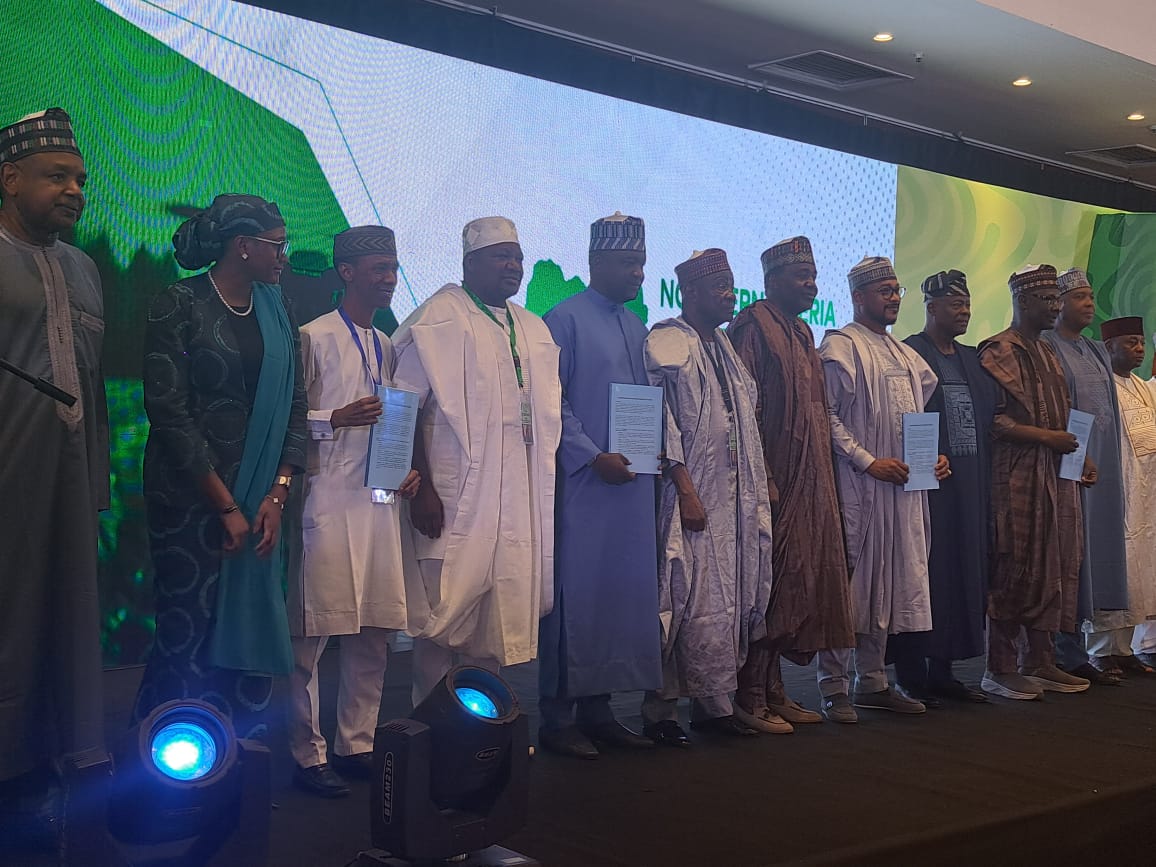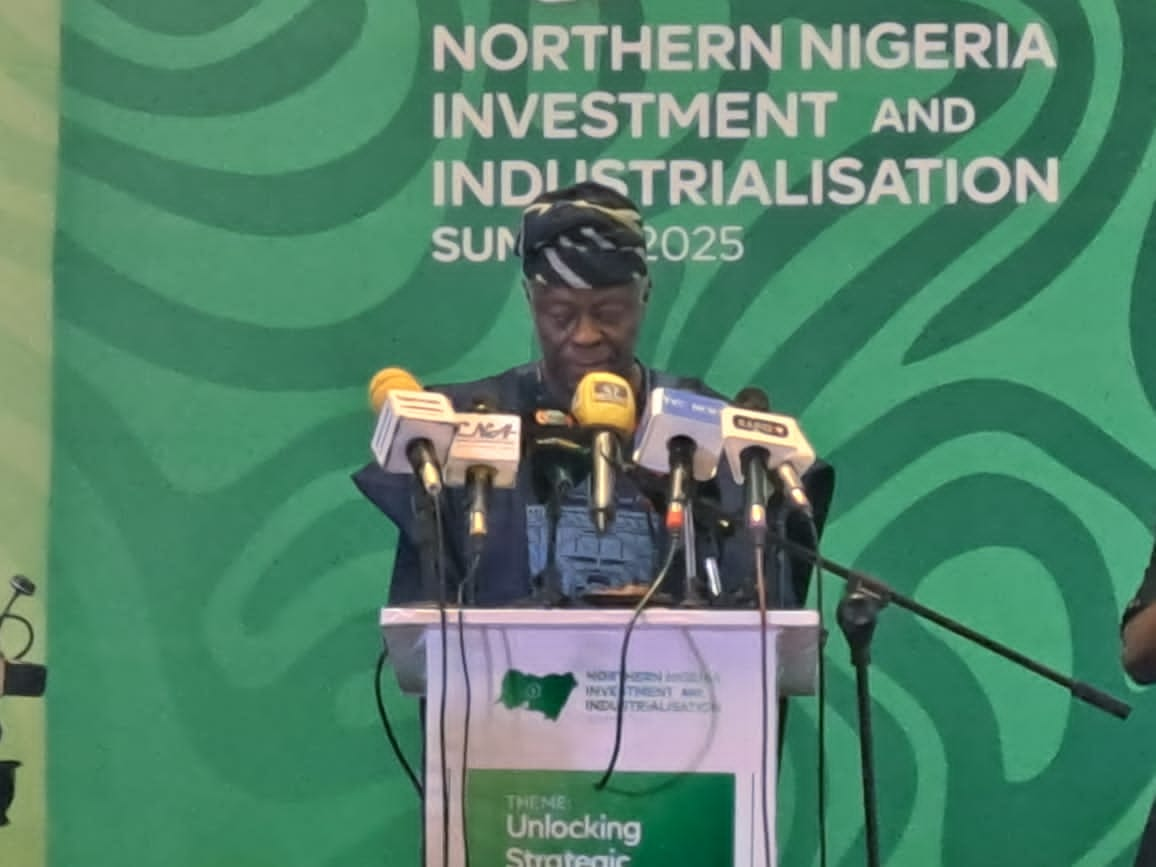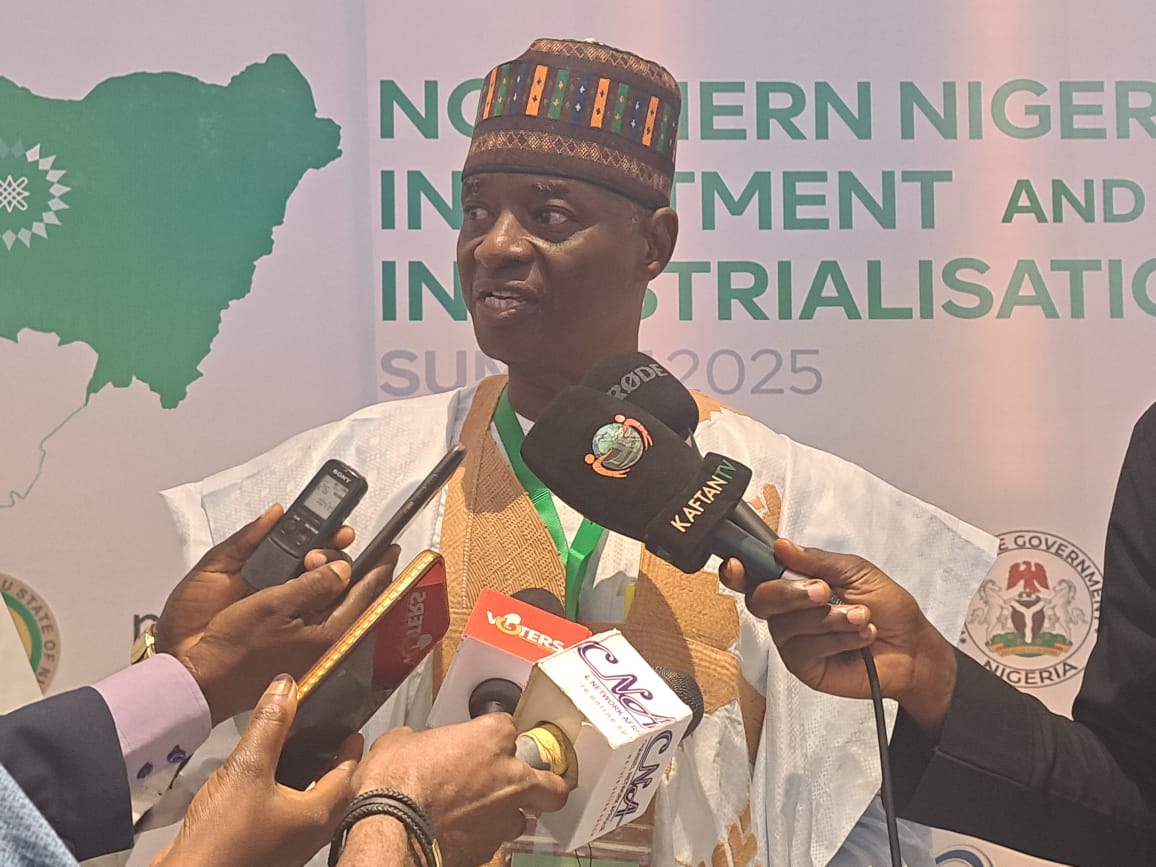By: Goodluck E. Adubazi, Abuja.
At the opening of the Northern Nigeria Investment and Industrialization Summit 2025, held on Monday, September 29, at the Abuja Continental Hotel, Professor Ango Abdullahi, CON, Convener of the Northern Elders Forum (NEF), called for a renewed economic vision for the region. In his welcome address, he unveiled a ten-year strategic blueprint aimed at transforming the region into a hub for innovation, industrialization, and inclusive growth.
The summit, themed “Unlocking Strategic Opportunities in Mining, Agriculture, and Power (MAP 2025),” brought together political leaders, industry experts, development partners, and stakeholders from across the 19 northern states.
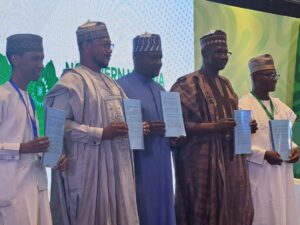
“This summit is not political; it is a mission-driven gathering focused on laying a sustainable economic foundation for the North,” Prof. Abdullahi stated. “The MAP 2025 agenda is not merely a theme. It is a framework for repositioning Northern Nigeria by 2035 as a center for industrial progress and economic resilience.”
Reviving the North’s Economic Legacy
Prof. Abdullahi highlighted the region’s historical role as the engine of Nigeria’s productive economy, especially in agriculture and mining. He recalled the days when an extensive railway network supported the export of groundnuts, cotton, hides, and solid minerals from the North to coastal ports.
“The North has always been the backbone of Nigeria’s real economy. However, the lack of modern infrastructure continues to hinder our ability to connect vast natural resources to national and global markets,” he noted.
He called for massive investment in infrastructure, roads, railways, energy, and storage, to fully unlock the region’s economic potential.
“Without corresponding infrastructure, our mineral wealth and fertile lands cannot deliver full value. The time for action is now,” he emphasized.
The NEF Convener also stressed the need for deliberate policy interventions and strong commitment from both government and the private sector to formalize mining, expand agro-processing, and create job opportunities.
Gov. Lawal Proposes Northern Economic Compact
Delivering a goodwill message at the summit, Governor Dauda Lawal of Zamfara State proposed the creation of a “Northern Nigeria Economic Compact” — a binding agreement among the 19 northern states to coordinate efforts in security, investment, and infrastructure development.
“Our region is blessed with immense mineral deposits and fertile land, yet we remain underdeveloped. The challenge before us is not what to do, but how to act collectively to transform our potential into prosperity,” he said.
Security: The Foundation for Development
Governor Lawal identified security as the cornerstone of economic growth in the region.
“Investors are not philanthropists — they are realists. They will not invest where their capital is unsafe. A safe North is a bankable North,” he warned.
He called on governors of the northern states to deepen cooperation beyond political lines, urging the integration of security frameworks, real-time intelligence sharing, and strengthened community policing.
“One-North” Investment Policy and Power Strategy
The Zamfara governor also called for the harmonization of investment regulations across the region to boost investor confidence.
“We must move towards a ‘One-North’ Investment Policy. Harmonized land administration, streamlined approvals, and uniform tax incentives will make us more attractive to large-scale investors,” he said.
To this end, he proposed the formation of a technical committee under the Northern States Governors’ Forum (NSGF) to draft a unified investment policy for ratification.
He further emphasized the urgent need to invest in regional power infrastructure, leveraging the Electricity Act 2023 to create embedded generation clusters powered by solar, hydro, and gas.
“No nation has industrialized on generators. In Zamfara, we are already investing in solar power plants for our agro-processing zones. It’s time to scale this model regionally,” he said.
Zamfara’s Model: From Informality to Formalization
Governor Lawal shared progress made in Zamfara, where the government is working to formalize and regulate the mining sector while promoting mechanized agriculture and agro-industrialization.
“We are moving from a past of informality and illegality to one of formalization, regulation, and value addition. But our success in Zamfara is tied to the collective success of Northern Nigeria,” he said.
A Regional Call to Action
Governor Lawal concluded with a call for joint investment in power, rail, and digital infrastructure, as well as a unified approach to economic planning and investor engagement.
“Let us create a single window for major investors, co-invest in critical infrastructure, and speak with one voice. Together, we will unlock not just the strategic sectors of mining, agriculture, and power, but the full potential of our people,” he said.
He urged that the summit be remembered not just for dialogue, but for concrete regional action.
“May this summit mark the beginning of a new era of cooperation and shared prosperity for Northern Nigeria,” he concluded.



